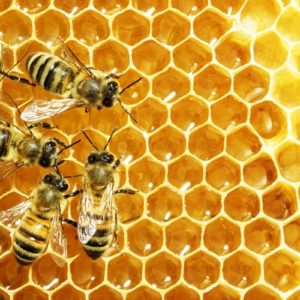
Bees are losing their habitat and dying in great numbers due to changes in the way people mass produce agriculture.
In the news for the last few years, there have been a lot of mentions about the dwindling bee population. The little insects are being killed off by pesticides, have fewer flowers to eat and are greatly affecting the way agriculture is produced. When there are fewer bees, fewer plants are pollinated, which means fewer crops grow. The rapid dying of these bugs can greatly affect what produce is available to attendees of chef school in Texas and people around the world. Here are some ways to help the bees, and, in turn, the culinary industry:
Plant flowers
The agricultural industry has greatly changed the way fields are planted and crops are rotated. Because of this, major areas of land are dedicated solely to one type of plant. This makes cross pollination and finding food difficult for bees. Home gardens and smaller farms are better suited habitats for the striped bugs because they can easily go from one crop type to another without flying great distances.
If you have a garden, try to plant some flowering items, such as:
- Chives
- Lavender
- Watermelon
- Flowering broccoli
- Bee balm
- Goldenrod
- Dandelions
- Lilacs
- Black-eyed Susans
- Cucumbers
- Tomatoes
- Raspberries
- Blueberries
- Blackberries
- Strawberries
You don’t have to have a large plot or even a full garden to help the bees. If you have a few planters or pots outside that include flowering plants, you are offering them a food source which greatly increases their chance of survival.
Avoid pesticides
According to an article published in the Bulletin of Insectology, neonicotinoids, a type of pesticide used globally, have a major effect on bee populations. In places where crops were treated with the chemicals, bee colonies collapsed at the end of winter with some of the residents leaving and others dying of infection or prolonged exposure to the pesticide. Other pesticides, such as rat poison, pest control and some consumer plant starters contain trace amounts of neonicotinoids that can kill any bee or insect that comes into contact with a treated plant. Instead of using these potentially harmful chemicals, consider using natural deterrents like planting peppermint, spearmint or sprinkling cayenne pepper at the root of your plants to keep ants and slugs away. Not only will you be helping the bees, but your wallet will also thank you.
Consider safe removal
Many people are uncomfortable with leaving a bee hive in their yard. Bee stings are painful and hives can be dangerous to children, adults and dogs. Instead of bee-bombing the hive with harsh aerosol-spraying solutions, consider having the hive moved somewhere else. Some bee keepers or bee keeping clubs offer hive removal services where they come to your residence and remove the hive without hurting the bees. They will use harmless smoke on the insects so they fall asleep and can be safely transported to another area. There they will be able to live successfully out of the way of humans.
Buy local bee products
There are many people who keep bees and make things out of their honey or wax. Instead of purchasing the plastic honey bear at a nearby chain grocery store, opt to head to a coop or farmers market to buy honey straight from a beekeeper. The location of the beehive has a great effect on what the honey tastes like. For example, if the bees pollinated mostly soy plants, the honey will have a different taste than if they were around a lot of sunflowers. Honey that was made locally will have a unique flavor and is great for gifts as well as to use in recipes for your Austin culinary arts school homework. Beekeepers often offer other treats too, such as beeswax candles or body products. You’ll enjoy the fresh honey and be supporting a local business.


